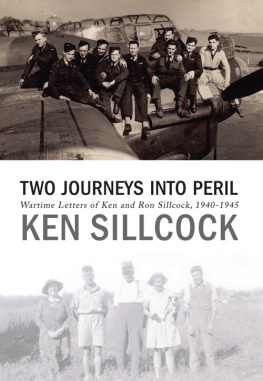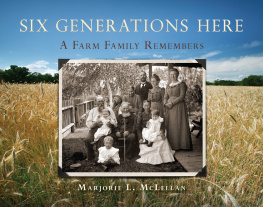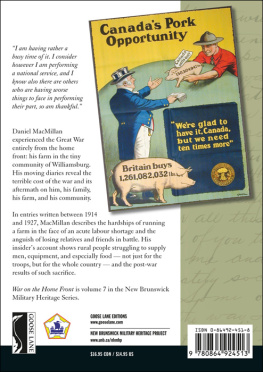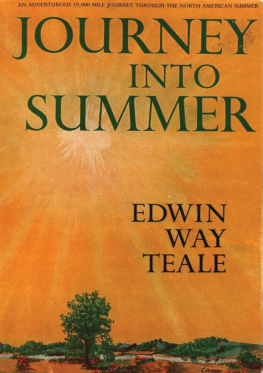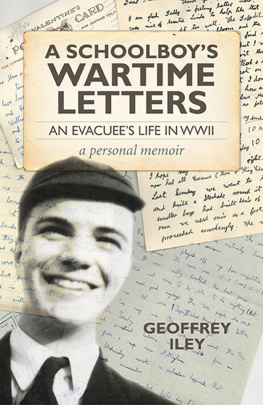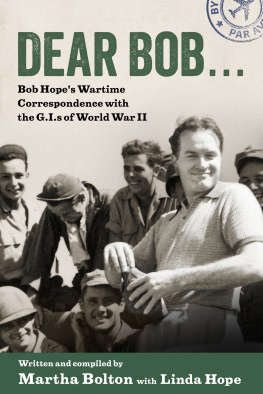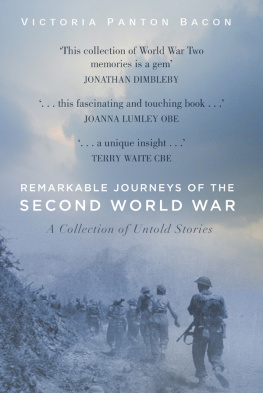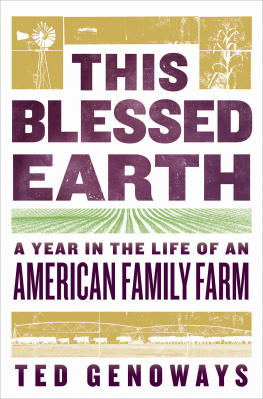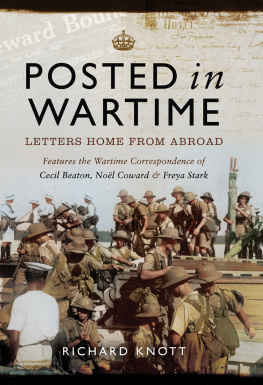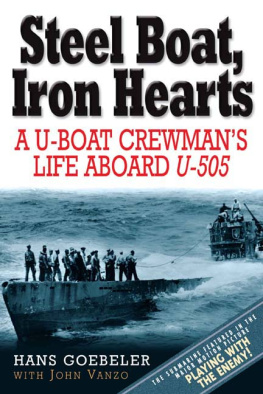Ken Sillcock - Two Journeys Into Peril
Here you can read online Ken Sillcock - Two Journeys Into Peril full text of the book (entire story) in english for free. Download pdf and epub, get meaning, cover and reviews about this ebook. year: 2011, publisher: Port Campbell Press, genre: Home and family. Description of the work, (preface) as well as reviews are available. Best literature library LitArk.com created for fans of good reading and offers a wide selection of genres:
Romance novel
Science fiction
Adventure
Detective
Science
History
Home and family
Prose
Art
Politics
Computer
Non-fiction
Religion
Business
Children
Humor
Choose a favorite category and find really read worthwhile books. Enjoy immersion in the world of imagination, feel the emotions of the characters or learn something new for yourself, make an fascinating discovery.
- Book:Two Journeys Into Peril
- Author:
- Publisher:Port Campbell Press
- Genre:
- Year:2011
- Rating:4 / 5
- Favourites:Add to favourites
- Your mark:
- 80
- 1
- 2
- 3
- 4
- 5
Two Journeys Into Peril: summary, description and annotation
We offer to read an annotation, description, summary or preface (depends on what the author of the book "Two Journeys Into Peril" wrote himself). If you haven't found the necessary information about the book — write in the comments, we will try to find it.
Ken and Ron Sillcock grew up on a dairy farm a mile north of Yinnar, Gippsland. With the outbreak of the Second World War, they both enlisted.
This volume contains their wartime letters - to each other and back home to their family - and forms a unique, intimate record of their experiences in the armed services.
Two Journeys Into Peril — read online for free the complete book (whole text) full work
Below is the text of the book, divided by pages. System saving the place of the last page read, allows you to conveniently read the book "Two Journeys Into Peril" online for free, without having to search again every time where you left off. Put a bookmark, and you can go to the page where you finished reading at any time.
Font size:
Interval:
Bookmark:
Clouds of War
FROM OUR EARLIEST YEARS RON and I heard talk of war. I was four years old and he was two in 1914, the year the First World War began. One of our games in the next year or two was to pick two plantain stalks about 30cm long, each surmounted by a flowering head. One was held horizontally while the other player hit it with the other stalk, the impact on both being just behind the seed head. The loser was the one whose stalk lost its seed head.
We called this game killing Germans. I was not sure what Germans were, but supposed they were connected in some way with the germs which were blamed whenever someone got sick.
Later we mowed down whole ranks of dominoes standing in line, using a pop-gun with a cork projectile or, more often, a firearm improvised from discarded milking machine rubberware. At school we played the usual competitive games and were taught about the war with strong patriotic overtones and flag saluting and, from age sixteen, we did our compulsory military training, consisting mostly of rifle drill which seemed to have no relevance to the real purpose of a rifle.
In the meantime we had got to know two returned war heroes, Uncle Bert and Uncle Frank, who seemed to be largely responsible for winning the war with some help from other soldiers, though they never once mentioned any fighting they had done. When Uncle Frank lived with us, he showed us many small photos taken with his folding vest-pocket camera. I wondered how he had found spare moments to take them when, as I supposed, he had been so busy fighting every day.
Neither the playing of warlike games nor tales of heroic conflict gave either of us the slightest inclination to take up martial pursuits. The financial depression, which abruptly ended our formal education, gave us more immediate concerns such as the need to grow up in a hurry.
Our eventual entry into the armed forces was a casual affair after the war had started; for I had not believed the northern hemisphere nations would be stupid enough to allow another war after what they had suffered within my living memory. I drifted into the Army as a player in the Yarram band, which became the nucleus of the 22nd Militia Battalion band. During the three-month compulsory camp, four of us decided to offer ourselves as bandsmen in the AIF, which, we thought, would not mess you around like the Militia does. We learned the truth laterin any service being messed around is part of the training which makes it possible for 1,000 men to act as one without question.
I gave plenty of notice of my intention, but was quickly told that I was in a reserved occupation (Dairy Supervisor) and was not granted the required certificate of release. With that notice a small note from our Senior Clerk, a World War 1 veteran, gave the tip that, if I really wanted to enlist and re-applied, the certificate might be granted. I could have left it at that, but suddenly I was keen, and felt uncomfortable at the thought that someone else might have to do my share as well as his own. I asked forcefully for my case to be reconsidered, and was allowed to go.
Ron casually answered a RAAF advertised invitation to offer services for aircrew and left it to them. He felt this would be his only feasible avenue of service, as a knee injury had made it unlikely that he could cope with activity such as prolonged marching. He felt no certainty that his offer would be accepted, as there were so many aspiring flying men who could meet the exacting criteria for entry.
Ron had remained on the farm despite many efforts to find other positions during the Depression. He was interested in the work and had become a significant contributor to management decisions. But the Manpower authorities were not likely to block his enlistment as two younger brothers would remain to help my father.
The letters in this collection tell something of our thoughts and feelings at the time. But we could refer to where we had been, rather than where we were at the time of writing, and we could say little about any warlike activities. As the letters were censored by our own officers, we could not say much about the other people in our units. Nevertheless we found plenty to write about, just as one would in peace time travel letters. We both began by writing to each member of the family at home in turn, but Mother soon became our main correspondent, except for special birthday letters to and from the others.
Mother sent extracts from some of our letters to the ABC for one of its broadcast sessions. Fees paid for these she sent to an aunt for activities in support of prisoners of war, including her son.
Later, while I was in England, my sister Kath took up the letter writing after Mothers death.
At this point I pay tribute to the fortitude and supportiveness with which our parents faced the fact that we were enlisting. I realised what it means to parents years later, when my eldest child was at the age at which, had she been a son, she might have been called up for service in Vietnam.
When I told Father of my intention he commented, You might be maimed, understating the possible danger. I replied that, while fully aware of what might happen, at least I would be in a non-combatant role; for bandsmen would become stretcher bearers when their units went into action. When I told Mother later the same day she showed no surprise; for she had realised that it was inevitable that the war would involve at least one of her four sons. (Rons offer to the RAAF came a little later). Privately, parents of those years would have had many memories of their contemporaries, so many of whom were in the horrific casualty lists of the First World War. Privately, they must have suffered much anxiety.
A temporary setback
My enlistment met with another temporary setback. We, now grown to five with the addition of Arthur Coleman of the Morwell Shire Band, were told that recruitment had been temporarily suspended.
But we are bandsmen, we countered. A few days ago the papers said the Army was short of bandsmen. We were accepted, but Arthurs feet did not meet the required standard. The four of us were sent to Caulfield Racecourse, where those already in uniform greeted us with Youll be sorry!
No, we replied, Youll be sorry when we wake you early every morning!
Soon we were on a large parade, with a Warrant Officer calling, Any volunteers for Artillery?, Anyone for Signals?, and so on, including his joke, Anyone for Submarine Aircraft?, for which two recruits volunteered. Each group of volunteers was marched off, finally leaving only the four of us. Over strode the WO to ask did we want to be Field Marshals or something. We saluted him, knowing from Militia days that saluting a WO is more offensive than failing to salute an officer. Probably saluting while still in civilian clothes made the offence even greater, and explained that we were bandsmen.
At Caulfield we were kitted out, taught how to fold our blankets a different way from that taught in the Militia. Each blanket had to be folded into three, so that you appeared to have nine blanketsthats how the Army keeps you warm.
Three former Militia men occupying the rear rank did some precision drill when a column of us was marched out to the park. Acting as one, they did a smart right turn the exact moment they were opposite the door of a wayside pub, where they could sit in comfort and discuss higher war strategy. On our return, they smartly rejoined us and so got past the guards at the camp entrance. The rest of us were made to march at twice the speed of sound as measured by a marching band, thus doing our bit to win the war.
Albury and Bonegilla
Soon Auber Prowse and I were posted to the Albury Showgrounds to become founding members of the 2/23 Infantry Battalion (Alburys Own) and of its Band. Of our other two mates, Willie Wilson was sent to our sister Battalion, 2/24 Infantry, and Ern (Butch) Collis to 2/17 Battalion to join their respective bands.
Font size:
Interval:
Bookmark:
Similar books «Two Journeys Into Peril»
Look at similar books to Two Journeys Into Peril. We have selected literature similar in name and meaning in the hope of providing readers with more options to find new, interesting, not yet read works.
Discussion, reviews of the book Two Journeys Into Peril and just readers' own opinions. Leave your comments, write what you think about the work, its meaning or the main characters. Specify what exactly you liked and what you didn't like, and why you think so.

